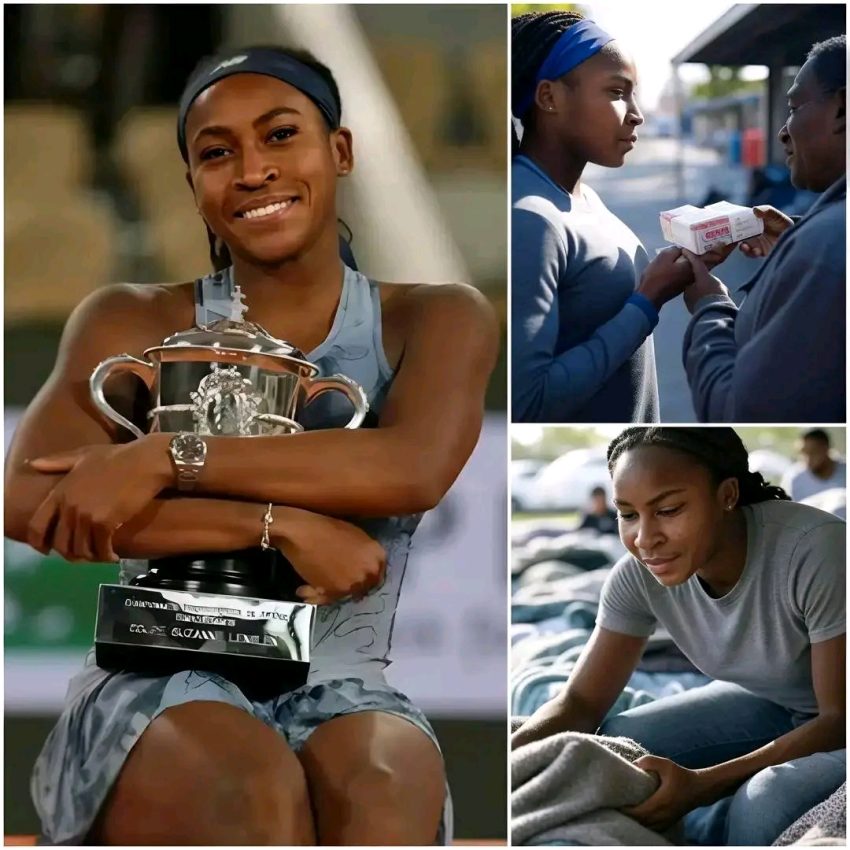The tennis world is ablaze with conversation after a stunning revelation that Coco Gauff, America’s young tennis sensation and rising superstar, has allegedly donated a staggering $5.7 million to charity. According to reports, Gauff allocated $3 million specifically to aid poor and homeless children, while another $2.7 million was funneled to the National Alliance to End Homelessness, a leading nonprofit organization battling to secure housing and medical care for vulnerable populations. In a heartfelt statement, Gauff declared, “Everyone deserves help and a better life.”
While many are hailing Gauff as a hero for using her platform and earnings to make a difference, the enormous sum has ignited a fiery debate across social media and sports forums. Critics are questioning whether the 21-year-old phenom is stretching herself too thin, both financially and emotionally, by shouldering such colossal philanthropic commitments while competing at the highest level of professional tennis. “Is she playing tennis or running for president?” one viral tweet asked, echoing sentiments that perhaps Gauff is becoming more of a public figure and activist than an athlete laser-focused on Grand Slam glory.
Some fans argue the donations are admirable but worry about the possible long-term impact on Gauff’s mental health and career. “It’s amazing what she’s doing,” wrote one commenter on a tennis forum, “but the pressure of being both a top athlete and a social crusader is immense. Look at what happened to Naomi Osaka.” Comparisons to other young stars who’ve struggled with balancing fame, expectations, and personal causes have only heightened the controversy swirling around Gauff’s decision.
Adding another layer of intrigue, several pundits have begun speculating whether Gauff’s generosity is part of a carefully crafted brand image designed to attract sponsors and cement her status as a global icon beyond tennis. “Charity is great, but let’s not pretend there’s no marketing benefit,” said one sports marketing analyst on a popular podcast. “It makes her look compassionate, mature, and socially responsible—all traits that big brands adore.” Such opinions have sparked a fierce backlash from Gauff’s supporters, who insist her actions are genuine and rooted in the values she’s championed since bursting onto the scene at just 15.
Meanwhile, the organizations benefiting from Gauff’s generosity have released statements praising the young athlete. A spokesperson from the National Alliance to End Homelessness called the donation “transformative,” stating it would directly fund shelter programs and medical outreach for thousands of families across the country. “Coco Gauff’s compassion will save lives,” the spokesperson said.
Yet, as the tennis calendar heats up and eyes turn toward Wimbledon, questions linger. Can Gauff maintain her blistering pace on the court while carrying the weight of millions depending on her generosity off it? Or is she risking burnout by diving so deeply into philanthropy at such a young age? One thing is certain: Coco Gauff is proving she’s far more than just a tennis player—she’s fast becoming one of the most fascinating, polarizing, and talked-about figures in sports today.
